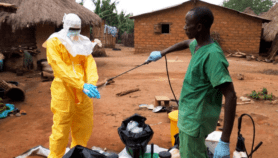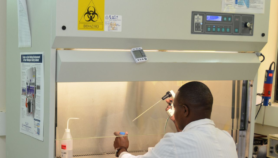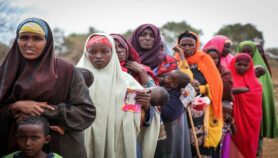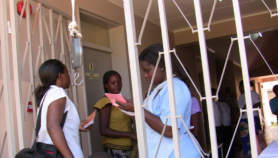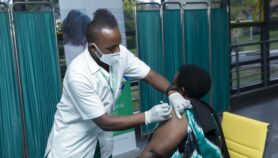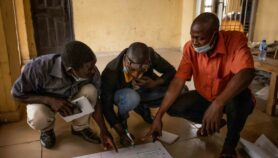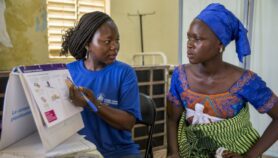13/03/20
Conduct simulation exercises on COVID-19

By: Eldon Opiyo
Send to a friend
The details you provide on this page will not be used to send unsolicited email, and will not be sold to a 3rd party. See privacy policy.
[NAIROBI] With confirmed coronavirus (COVID-19 virus) cases in Algeria, Burkina Faso, Cameroon, the Democratic Republic of Congo, Nigeria, Senegal, South Africa and Togo, an expert has urged Africa to conduct simulation exercises on the disease.
As of 11 March, eight countries in the WHO African region had recorded 39 cases of COVID-19, with Algeria alone having 20 (51.3 per cent), according to the WHO’s 51st situation report on the pandemic.
The WHO has declared the global COVID-19 outbreak a pandemic, a disease epidemic that has spread across a large region; for instance multiple continents, or worldwide. The UN body says that countries may face heavier burdens on their health systems if they fail to break the chains of its transmission.
“When you don't know what you are dealing with, you cannot respond adequately.”
Tolbert Nyenswah, Johns Hopkins Bloomberg School of Public Health
Tolbert Nyenswah, who served as Liberia’s deputy minister of health for disease surveillance and epidemic control from 2015-2017, says that the lack of adequate capacity to test and treat critical cases of COVID-19, if the disease were to spread further in Africa, is a deep concern.
“When you don't know what you are dealing with, you cannot respond adequately,” explains Nyenswah. “The health facilities are not designed to isolate a high-containment pathogen, and the healthcare facilities have inadequate infection prevention and control capacities. This usually put healthcare workers who are frontline fighters at high risk.”
Nyenswah, a senior research associate with at the department of international health at the US-based Johns Hopkins Bloomberg School of Public Health, says that conducting simulation exercises on COVID-19, activating or reactivating incident management systems and putting emergency operation centres on standby would enable the continent to be adequately prepared.
Michel Yao, programme manager of emergency response at the World Health Organization (WHO) Regional Office for Africa, adds that governments need to ensure that their countries and communities have strong healthcaresystems.
“The WHO has urged countries to prioritise strengthening the capacities … to investigate alerts, treat patients in isolation facilities and improve infection, prevention and control in health facilities and in communities,” says Yao in an interview with SciDev.Net last week (5 March).
With the COVID-19 threat now looming large in Africa, Yao says that thirteen African countries are a top priority for preparedness measures because of their direct links or high volume of travel to China: Algeria, Angola, Cote d’Ivoire, the Democratic Republic of the Congo, Ethiopia, Ghana, Kenya, Mauritius, Nigeria, South Africa, Tanzania, Uganda and Zambia.
The WHO says that over 30 countries on the continent can now test the virus and that what is needed is the strengthening of cooperation to better coordinate readiness and response efforts across Africa.
Countries that can perform diagnostic testing for COVID-19 include Algeria, Burkina Faso, Cameroon, Central African Republic, Congo, Cote d’Ivoire, Democratic Republic of Congo, Ethiopia, Gabon, the Gambia, Ghana, Guinea, Kenya, Madagascar, Mali, Mauritania, Mauritius, Niger, Nigeria, Rwanda, Senegal, The Seychelles, Sierra Leone, South Africa, South Sudan, Tanzania, Togo, Uganda, Zambia and Zimbabwe
Yao tells SciDev.Net that the WHO Regional Office for Africa has dispatched personal protective equipment for health workers, thermometers and other essential supplies for screening and handling suspect cases at airports and other entry points.
Nyenswah urges African countries train more rapid response teams to help fight COVID-19.
Adaora Okoli, a clinical researcher, emerging infectious diseases and data analysis expert says all African countries are at risk, but some countries are more at risk than other because of their dense population, weak health care systems and air travel data.
“Some countries have a temperate climate like Kenya in which the virus would more likely thrive and spread than Nigeria which is more tropical,” says Okoli who is also Aspen New Voices fellow.The onus, according to her, lies on each country training their healthcare workers and providing them with the necessary tools for infection control such as masks, personal protective equipment, alcohol based sanitizers, gloves, isolation centres, mechanical ventilators and clean water. And therein lies the challenge.
This piecewas produced by SciDev.Net’s Sub-Saharan Africa English desk.


